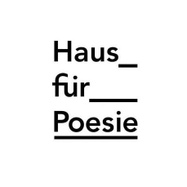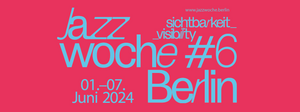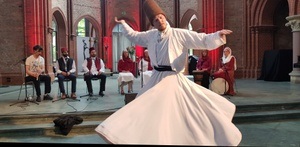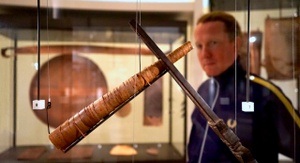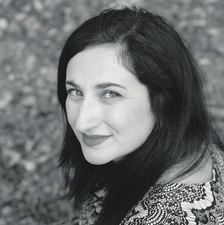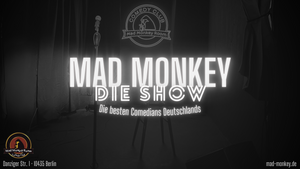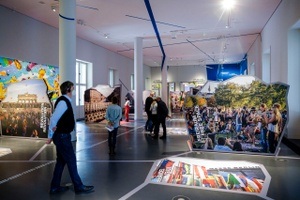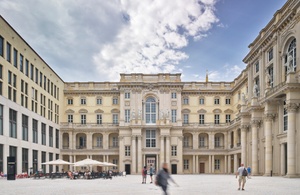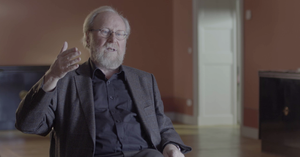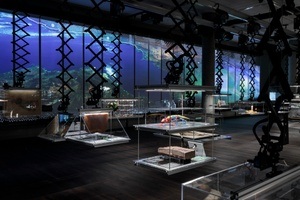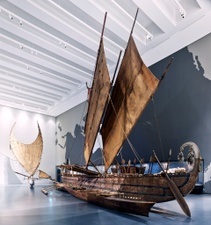Weltraumschleusen und Streicheläxte – Wilhelm Bartsch & Thomas Kunst
In the organizer's words:
Wilhelm Bartsch (born 1950 in Eberswalde) and Thomas Kunst (born 1965 in Stralsund) are two poets who are friends and are characterized by their eloquence and masterful use of form (especially the sonnet). The poems in Bartsch's latest volume Hohe See und niemands Land (Wallstein Verlag 2024) venture into foreign waters, vertical ice walls, antler forests and onto the killer dunes of Skagen. Readers encounter prehistoric giants and man-eaters. Borrowings are made from Shakespeare, Sami legends, the Simpsons and Norwegian ballads from the Middle Ages. These are texts in which secret doors open in landscape stacks, ghost kids flick cowhide balls at each other and sperm whales dive into a "dark embrace with squid".
In his new poems from the book Wü (Suhrkamp Verlag 2024), Thomas Kunst pursues a poetics of controlled rule-breaking. He writes tanka, prose poems and modified sonnet wreaths with hidden tracks. The master sonnet is a dialog with the house cat, whose name (Tigerwürstchen or Würfelchen, Wü for short) gives the volume its title. Kunst's poetic ideal is to irritate the simplest things in the most violent way, which is confirmed in every verse, e.g. when he talks about the "spawning of hard foam profiles on the garden pond" or about cold start aids for "popularly daring texts". Incidentally, it's all brilliantly and casually rhymed (Nebel on Faible, Ribnitz on Landbesitz, Innenränder on Nesselbänder) with a sure feel for the lingering verse: "It's easier to remember first names in the snow."
In reading and conversation: Wilhelm Bartsch | Thomas Kunst
Moderation: Peter Geist
This content has been machine translated.Location
Organizer
